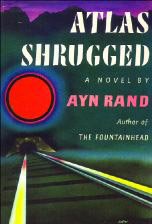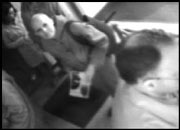WHATEVER WE WERE doing, we’re not doing anymore—and whatever we were reading, we’ve put down. Great war books now have more relevance than ever before. These are a few that we keep going back to.
The Things They Carried By Tim O’Brien
A collection of interrelated stories inspired by the author’s experiences in Vietnam. The title piece, the strongest and most resonant, is a catalog of baggage—an inventory of what items infantrymen carry and how much each thing weighs. Men carry more than helmets and boots, though; at the heart of the story is what they carry inside, intangibles with tangible weight. Cowardice, O’Brien writes, “in many respects was the heaviest burden of all, for it could never be put down.”
Slaughterhouse 5 By Kurt Vonnegut
Billy Pilgrim’s sanity is a casualty of World War II. He’s become what Vonnegut calls “unstuck in time”: floating in and out of his past and his future, slipping seamlessly from old age to young adulthood, from his first marriage to his third, from one harrowing experience of war to another. Everything’s chronologically out of place—the plotline nauseatingly nonlinear, the sarcasm terrible and twisted—but the novel’s a surprisingly slick read and strangely, jarringly, it’s funny.
Hiroshima By John Hersey
Last week, The New Yorker devoted almost their entire issue to the aftermath of Sept. 11. They did nearly the same thing—only more so—in August 1946 with the publication of John Hersey’s Hiroshima; at 31,000 words, it took up the entire issue. It was published as a book, and it remains in print today. Hersey conducted interviews with six survivors of the first atomic bomb, out of which he produced a steely and intricate account of life in the days and weeks that followed the blast. Hersey’s stark, vivid portrayal of the physical and psychological ramifications of the detonation of the atom bomb made a significant contribution to the pervading sense of dread that Americans felt about its use. The book continues to serve as the centerpiece of anti-nuclear sentiment around the globe.
War and Peace By Leo Tolstoy
Tolstoy tends to focus on poignant particulars—most movingly on characters absolutely confounded by their own incontrovertible circumstances. The personal is compounded by the political—and Tolstoy’s historical accuracy is astounding. And yet, as Tolstoy writes in the second epilogue, “To seize and put into words, to describe directly the life of humanity or even of a single nation, appears [to me] impossible.” Jared Lyman
We Wish to Inform You That Tomorrow We Will Be Killed with Our Families By Philip Gourevitch
A stunning, beautifully written account of the Rwanda massacres focuses on the mutability of morality—and what happens when civilizations are seized by inexplicable bloodlust. Despite the bleakness of the topic, Gourevitch’s stirring prose implies promise and the possibility of hope while carefully probing for an explanation of the evil that lurks at the heart of humanity. Audrey Van Buskirk
The Sun Also Rises By Ernest Hemingway
Not a war book per se but an examination of war’s more subtle consequences. Culturally, the book provides a glimpse of American expatriate culture in Europe between the World Wars while intimately, intricately exposing war’s subversion of manhood and its manifestations—sociological, psychological, and sexual.







